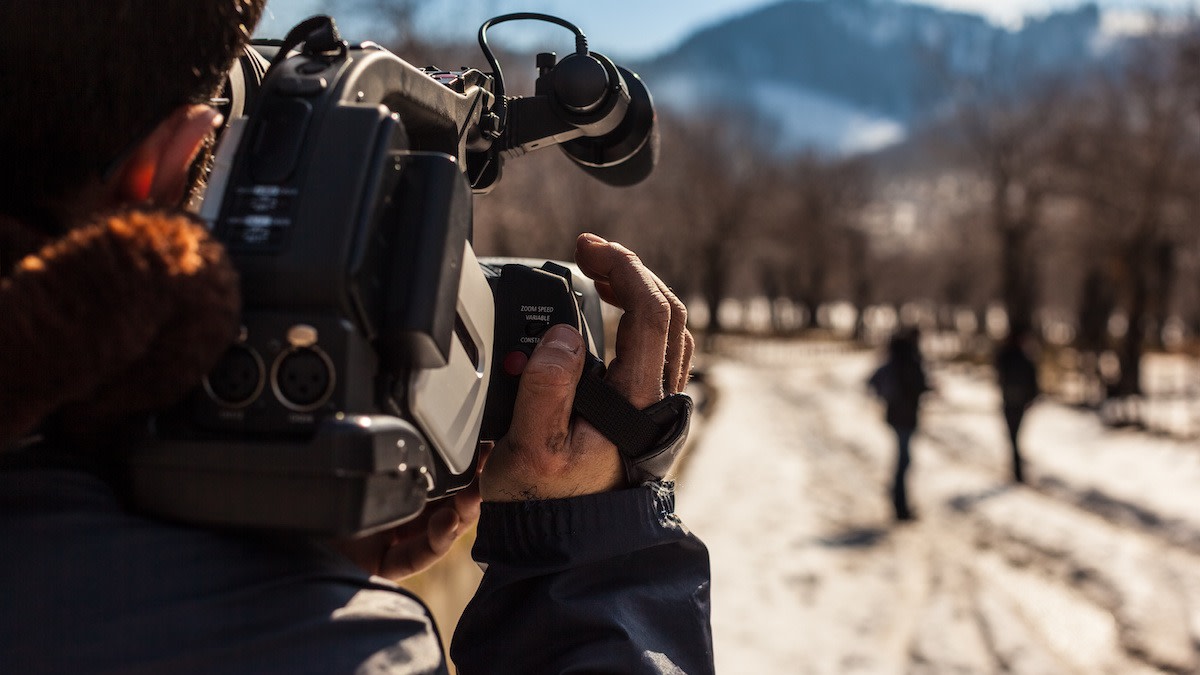Guide to Poetic Documentaries: 4 Examples of Poetic Mode
Written by MasterClass
Last updated: Jun 7, 2021 • 2 min read
Most documentaries inform their audience about a topic or persuade them to believe a certain truth. Some documentary filmmakers do this through narration over the footage, some use the cinéma vérité style, and others take a personal approach by inserting themselves into the film's narrative. Other directors make poetic documentaries, which take a more experimental approach, weaving together images and music to create a specific emotional experience.
Learn From the Best
What Is Poetic Documentary?
Poetic documentary is a subgenre of documentary filmmaking that uses avant-garde techniques to evoke a certain mood or feeling rather than prove a point through a traditional linear narrative structure. Poetic documentary filmmakers provide the audience with an emotional perspective on a subject through the use of rhythmic visuals that provide an abstract and subjective interpretation of reality.
The Origins of Poetic Documentary
The poetic mode of documentary filmmaking originally emerged from the City Symphony film movement in the 1920s and was a retort against the style and content of the predominant fiction film genre. While poetic documentaries have existed since the 1920s, the actual term “poetic documentary” wasn't coined until 2001 in documentary theorist Bill Nichols’ book Introduction to Documentary. In his book, Nichols classified poetic mode as one of the six modes of documentary filmmaking—along with observational mode, expository mode, participatory mode, reflexive mode, and performative mode.
3 Characteristics of Poetic Documentaries
Poetic documentaries tend to focus on triggering emotional responses in the viewer, and they often have several unifying characteristics.
- 1. Visual rhythm over continuity: Breaking from standard editing rules, poetic documentaries are avant-garde in that they aren’t concerned with maintaining continuity from scene to scene. Instead, the editing goal is to emphasize rhythm, composition, and shot design to create visuals that show the viewer the world through a new point of view.
- 2. Lack of traditional narrative: Since poetic documentaries are primarily focused on creating a particular mood or feeling, establishing a linear narrative isn’t necessary. This means characters don’t progress through arcs and storylines don’t move toward resolutions.
- 3. Subjectivity: Rather than arguing for an objective fact-based truth, poetic documentaries provide a subjective interpretation of a topic. They approach subjects in a more abstract and experimental way than traditional documentaries.
4 Examples of Poetic Documentaries
Poetic documentaries have varied wildly in style and subject matter over the years.
- 1. Rain (1929): Dutch filmmaker Joris Ivans' classic city symphony uses disconnected shots to evoke how it feels to experience a rainstorm in Amsterdam.
- 2. Man of Aran (1934): Directed by documentary pioneer Robert Flaherty, Man of Aran is a poetic vision of the daily life of people living on the Aran Islands off the coast of Ireland. Flaherty was not concerned with obeying the standard non-fiction documentary restraints and fabricated scenes in order to romanticize life on the island. Flaherty's fellow filmmaker John Grierson actually coined the term "documentary" in 1926 to describe one of Flaherty's earlier films, Moana.
- 3. Koyaanisqatsi (1982): Director Godfrey Reggio's wordless poetic documentary juxtaposes slow motion and time-lapse footage of cities and nature with a haunting score by Phillip Glass to show the effects that cities and modern technology have on human life.
- 4. Sans Soleil 4 Examples of Poetic Documentaries : This French documentary directed by Chris Marker is a poetic meditation about the complexities of human memory. Lacking a character-based narrative, the film consists of a dreamy collection of travel footage and memories that are only loosely connected by a mysterious voiceover.
Want to Learn More About Filmmaking?
Become a better filmmaker with the MasterClass Annual Membership. Gain access to exclusive video lessons taught by film masters, including Ken Burns, David Lynch, Spike Lee, Jodie Foster, and more.
